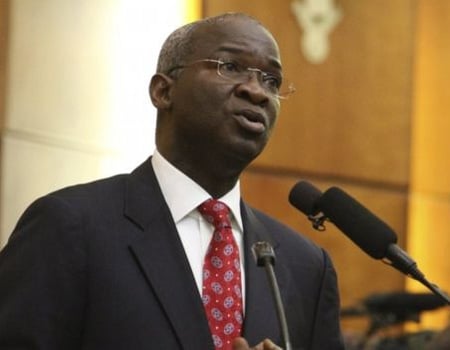
A proposed Amendment to the Federal Government Staff Housing Loans Board (FGSHLB) Act, currently, before the House of Representatives, has set the stage for Federal Public Servants to derive guaranteed benefits from their contributions to the National Housing Fund (NHF).
The Nigerian Tribune learnt that the Amendment is proposing that 50 per cent of employees of the federal government’s contribution to the National Housing Fund, go to the Federal Government Staff Housing Loans Board,( FGSHL).
This, according to the workers, would remove the overbearing influence of the Federal Mortgage Bank of Nigeria (FMBN), whose activities have been the major obstacle impeding the workers’ access to the funds for their housing benefits.
Statutorily, the National Housing Fund Act compels workers to contribute two and half per cent of their salaries to the fund and the law empowers employers to deduct the contributions at source.
“Although the law covers workers in both the public and private sectors, only federal public servants have been contributing to the fund faithfully since the law commenced in 1993,” said a reliable source, who confided in the Nigerian Tribune.
According to the source, the existing law, setting up the National Housing Fund, gives the Federal Mortgage Bank of Nigeria, the power to manage the funds being contributed by workers.
“But, unfortunately, the Federal Mortgage Bank operates as a secondary mortgage institution that does not deal with individual contributors. This was identified as a problem of access to the fund by contributors!”
This unpalatale situation was made public at the Public hearing, conducted by the House of Representatives Committee on Public Service Matters, Tuesday, 27th March, 2018. The committee also heard that although the law demand the Federal Mortgage Bank to give individual contributors details of their statement of Account every year, the bank failed to comply by the provision of this law.
“Since the year, 2000, labour has been kicking against continuous contribution by workers to the National Housing Fund on the ground that there was no guaranteed benefit,” Nigerian Tribune learnt.
It was also disclosed that the grouse of labour against the scheme was that as at 2006, about 1.8 million workers were registered from 17,132 employers, under the National Housing Fund, with a contribution of about N6 billion to the NHF; but only less than N280 million was disbursed to a handful of 446 contributors as loans.
About N20 billion was said to have been contributed by workers to the National House Fund between its inception in 1993 and 2006, and the laws governing the funds leaves the Federal Government Staff Housing Board, that has been operating a social welfare scheme to providing houses for Federal Government workers for a long time “in the cold, hard and dry.”
The last time the law governing the operations of the Loans Board was revised was about 44 years ago in 1974, while efforts to amend the law during the 6th National Assembly in 2006 were inclusive.
Under the proposed amendment of the Federal Government Staff Housing Loans Board Act before the House of Representatives, Section 8 of the new Act is proposing that 50 per cent of Federal Public Service contributions to the NHF should be channeled to the Loans Board to guarantee contributors’ access to the fund.
In his lead presentation at the public hearing, the Director, Legal Services, in Office of the Head of Service of the Federation, Mr Emmanuel Omonowa, proposed that “In view of the fact that contributions to the National Housing Fund is being done by federal public employees, 50 per cent should be ordered, in the Act to be amended, to be paid to the loans board.”
He advanced his reasons to the effect that for anybody to retire from the public service, the request is that such retiree must provide a certificate from the Federal Government Staff Housing Loans Board as evidence that they did not owe. “These are the people contributing and they must come to the Board and obtain a certificate to show that they do not owe. So, why not put their contribution here, so that when they come for their certificate and its shown that they have not obtained any loan, then you put their contributions together and give it to them? With that, it is easier for the service and the government, as well as the public. This would boost the confidence of the public that you are running a system. But what is on the ground is that deductions are made at source from their salary, but that money put together is given to the primary mortgage institutions to build houses that civil servants cannot buy. That is why we continue to have housing deficit in Nigeria,” Omonowa argued.
Speaking through one of their representatives on the Board of the Federal Government Staff Housing Loans Board, Mr Ejiofor, the labour group insisted that what they are saying precisely is that the Act says two and half per cent of salaries of workers, on housing is on the concurrent list.
“As at today, largely it is the federal employees who contribute. As a result, you use the funds of federal employees to fund mortgage owners or mortgage system in which the workers, themselves, cannot pay the terms. That is the critical issue. State governments, most of them, are not in that scheme and we are saying that federal public employees, who are the main contributors, as of today should be the major beneficiaries. But ask the NHF do they give annual returns? No! Workers would retire or die, how quick or how often do they refund their money?”
The Federal Government Staff Housing Loans Board exist wholly for federal public employees, as a result the bulk of their contribution should go there. That is equity. But to take the contributions of poor workers and fund mortgage institutions, who in most cases, provide Housing Schemes for the rich”. Said Ejiofor.
Similarly, a representative of Senior Civil Servants Association of Nigeria, Mr. Apebo Joshua, told the committee: “What we are saying is that the contribution of public servants should be transferred to the Federal Government Staff Housing Loans Board. This is because we do not benefit from our contributions to the National Housing Funds, being managed by the Federal Mortgage Bank of Nigeria.”
He added: “Even if the Federal Mortgage Bank gives private developers money to build houses, they would build houses that are not affordable to civil servants,’ saying, ‘for example, if a developer charges four million naira for a house, a civil servant who desire to own such a house would be required to pay 10 per cent of the sum, amounting to N400,000 and asked ‘how much is minimum wage? Minimum wage is N18,000; N18,000 X 12 will give you N216,000. The sum of N216,000 is not up to the 10 per cent being demanded by the developer,’ adding in frustration, ‘how can somebody acquire that type of house?
“What we are saying is that the whole thing (contribution of workers to NHF), should be channeled to the Federal Government Staff Housing Loans Board, so that we can be able to access loans, pointing out that,’ if not there is no way public servant would buy these houses being built by private developers,’ saying, the consequences is that they would build the houses and sell to other people who are not even contributors to the NHF.”
Omonowa, had before leading the Public Hearing through the technical details of the amendment, sought the intervention of the Law makers, to right the wrongs against Federal Public Officers, who mandatorily contribute to the National Housing Fund, saying, “… the issue of National Housing Fund and the Board, is a bitter experience and I want to plead with this committee, that in amending this Act, please efforts should be made to look at the National Housing Fund Act.”
He explained: “A lot of provisions that assist the nation, that assist Federal Officers employees are ignored. The Act is explicit that at the end of each year, all the contributors are entitled to the Statement of Accounts. It is there in the Act, of how much is contributed and the interest; it is stated clearly, there that if at the end of your service career, you are not given loan by the bank, you are entitled to the principal contribution and the interest. It is important…to address this issue so that this committee, once and for all can address this fear, this pain the poor Federal Service employees are going through.”





